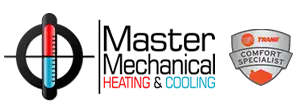Protecting Your HVAC Unit from the Summer Heat
In the summer, the last thing you want is for your AC to break down. Most AC units can only handle temperatures lower than 95 degrees. During the summer, temperatures can soar to 95 degrees or higher. With such high temperatures, your AC may malfunction or consume a lot of energy. Therefore, it's crucial to protect your AC to prevent breakdowns.
Understanding the Impact of Heat on HVAC Systems
Leaving your air conditioner in the heat for extended periods can lead to breakdowns. So, how can high temperatures affect your system?
High Energy Consumption
During high temperatures, your HVAC system has to work harder to keep you cool, resulting in increased energy bills. In addition, your AC may experience more frequent breakdowns due to the extra workload.
Overheating
Continuous operation of the air conditioner in high temperatures can cause overheating, leading to system shutdown and malfunction. It's important to maintain the AC unit properly and avoid overworking it during periods of extreme heat to prevent potential breakdowns.
Dirty Filters
During hot weather, the air conditioner runs continuously, leading to clogged filters. This reduces the AC's efficiency and can cause damage. Regular filter maintenance is essential for smooth operation.
Steps to Protect Your HVAC System
Keeping your air conditioning unit functioning properly should be your top priority during the summer. Here's how to do it:
Regular Maintenance and Cleaning
Remember to schedule professional AC servicing to prevent breakdowns during the summer. Regular maintenance ensures your air conditioning unit operates efficiently and saves you money on energy costs. During maintenance, the technician will inspect the drain lines, refrigerant levels, and overall performance and clean the filters.
Upgrading to Energy-efficient Models
Consider investing in an energy-efficient HVAC model to reduce your energy bills. These models consume less energy while still providing the same level of comfort. Look for models with a high Heating Seasonal Performance Factor (HSPF) and Seasonal Energy Efficiency Ratio (SEER). Additionally, prioritize systems that are Energy Star certified, as they meet the established energy efficiency standards.
Using Smart Home Technology to Regulate Temperature
Technology has made life easier. With smart home technology, you no longer need to worry about high temperatures. You can adjust the temperature while you sleep or when you don't need as much heating.
Landscaping to Provide Shade
Your air conditioner is likely to be affected by the intense sun as it is located outside. To prevent this, ensure that your landscaping includes shade for the AC. Selecting the appropriate plants can help maintain cool temperatures in your home. The plants should be positioned 5-6 feet above your unit. Use tall trees, hedges, and shrubs to shield your AC.
Common Summer HVAC Problems
The unbearable summer heat often causes most AC units to malfunction, which is the last thing you want to deal with in such weather. Some of the problems you may encounter include:
Leaking Refrigerant
The refrigerant's main function is to absorb heat and ensure cooling. If you notice that your home is not cooling, the issue may be a refrigerant leak. It's important to locate and fix the leak before refilling your air conditioning unit.
Capacitor Burn out
The air conditioner has two capacitors - one starts it, and the other runs it. If either of the capacitors burns out, it can lead to a malfunction. It's important to note that checking or replacing a burnt capacitor is not a DIY project since it involves working with electricity. It's best to have qualified technicians handle this task to ensure your AC's safe and proper functioning in no time.
Clogged Filter
Remember to regularly clean your air filters, particularly in the summer, to prevent common issues such as reduced cooling efficiency, increased energy bills, and potential damage to the system, such as a frozen coil. Regular maintenance can help you avoid these problems.
The Benefits of Protecting Your HVAC System
The HVAC accounts for half of energy use in most homes. Protecting your AC in summer makes it efficient, which leads to reduced energy costs. If you don't protect your HVAC from the high temperatures, it'll have to work hard and use more energy.
An efficient system also has environmental benefits. If the energy consumption is high, it causes a lot of green gas emissions which affects the climate. Once you improve the AC's efficiency, you'll reduce the carbon footprint and have a sustainable environment.
Contact Us Today!
Protecting your AC during the summer heat may be the last thing on your mind. But doing so will help you save on energy costs and the environment. Regular maintenance, using energy-efficient models, and using the ideal landscape will go a long way to keeping you comfortable during summer. If you need help with your AC's regular maintenance, Master Mechanical is here to help. Get in touch with us today.






